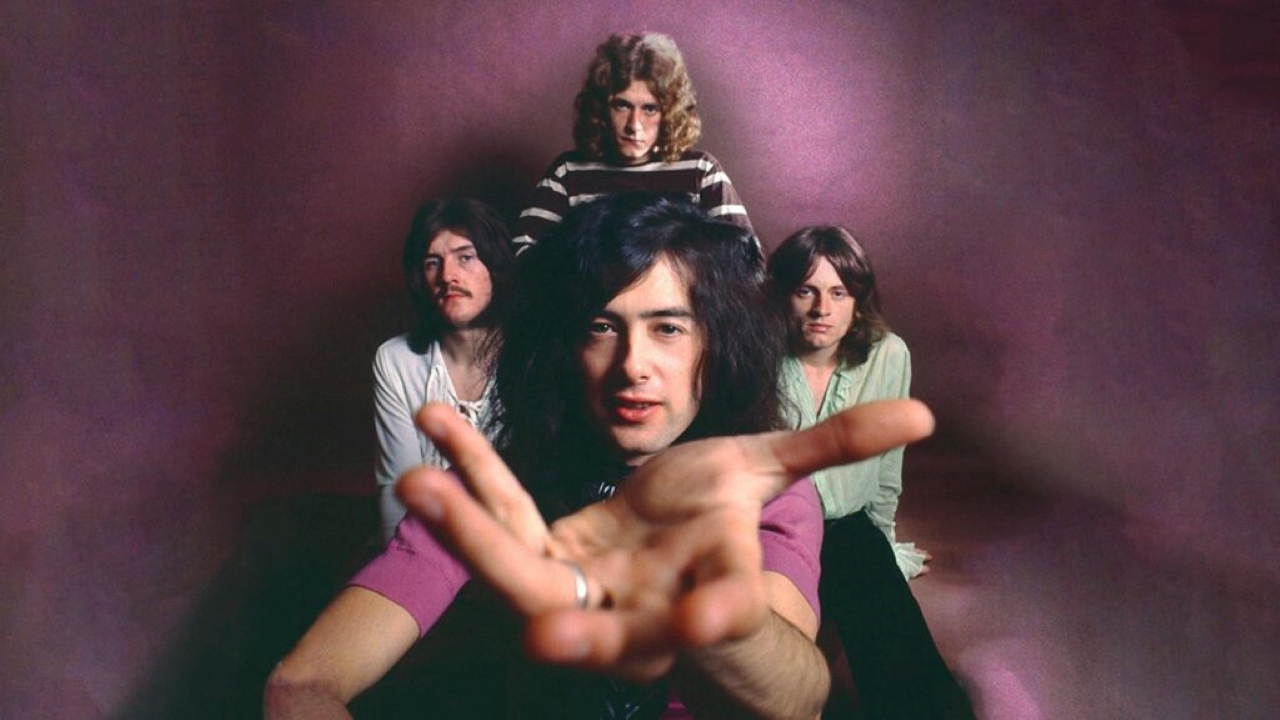🌊 A Blues Song Reborn in Rock’s Storm
In 1929, blues singer Kansas Joe McCoy and Memphis Minnie recorded “When the Levee Breaks.” It was not written in a recording studio under the influence of guitars, amplifiers, or the hunger for fame. It was written from survival—born out of the Great Mississippi Flood of 1927, a disaster that displaced hundreds of thousands of African Americans across the South.
The song carried despair, helplessness, and resignation. It was about people watching nature swallow their homes, their farms, and their lives. A levee was supposed to protect, to hold back destruction. When it broke, everything that was fragile in human existence broke with it.
Decades later, Led Zeppelin stumbled upon this song and decided not just to cover it, but to reinvent it. What came out of their reimagining was not a lament, but an earthquake.

🥁 The Beat That Shook the Earth
John Bonham’s drumbeat in “When the Levee Breaks” is legendary—possibly the most sampled drum loop in history, heard in everything from hip-hop to electronic music. But at the moment of recording in 1971, it was just Bonham being Bonham.
The band had set up to record in the grand hallway of Headley Grange, a crumbling stone mansion in Hampshire, England. Bonham sat at the bottom of the stairwell, with microphones dangling from the top. He hit the kit with brutal precision, and the natural reverb of the hall made it sound as if the gods themselves were drumming.
Jimmy Page, fascinated with sound engineering, slowed the tape, giving the drums a massive, thunderous weight. The result was unlike anything heard in blues, rock, or jazz. It was primal—both terrifying and intoxicating.
It was not just a beat. It was a warning.
🎸 The Sound of Impending Collapse
Page’s guitar lines didn’t soar in this track. Instead, they swirled, warped, and distorted, creating a suffocating atmosphere. John Paul Jones added harmonica and bass that slithered like floodwaters.
And Robert Plant’s vocals? They were not tender cries of sorrow like the 1929 original. Plant stretched his voice like a preacher, half pleading, half summoning the end of days:
“If it keeps on rainin’, the levee’s gonna break…”
It wasn’t just a lyric anymore. It was prophecy.
For Zeppelin, the levee was not just a physical barrier holding back water—it was a metaphor for repression, control, and the fragile structures holding back chaos. When the levee breaks, society itself floods.
⚖️ Blues Meets Rebellion
Led Zeppelin never shied away from stealing, borrowing, and transforming the blues. But with “When the Levee Breaks,” they did something different. They didn’t mimic the Delta blues—they weaponized it.
In Zeppelin’s hands, the blues became a revolution. No longer was it just about cotton fields, hard labor, or Southern sorrow. It became about modern disillusionment, postwar alienation, and the rising counterculture of the 1970s.
The flood was no longer just water. It was the system collapsing. It was fear turning into rebellion. It was the sound of a younger generation who felt trapped, ready to let it all break.
🌑 The Darkness of Led Zeppelin IV
“When the Levee Breaks” closed out the monumental album Led Zeppelin IV. By the time fans reached this track, they had already been through “Black Dog,” “Rock and Roll,” “Stairway to Heaven.” Each song was a mountain.
But this final track felt different—it was heavy, dark, and ominous. It didn’t resolve. It didn’t uplift. It just dragged you under.
That was the genius. While “Stairway to Heaven” soared into light, “When the Levee Breaks” pulled you into the mud. Together, they represented the duality of Zeppelin—the dream and the nightmare, the myth and the collapse.
🎤 Robert Plant and the Voice of Fear
Plant often said the song’s lyrics resonated with him because of how fragile life felt in the 1970s. Wars abroad, unrest at home, environmental concerns, and the sense that something was always on the verge of breaking.
His voice was both desperate and resigned. Unlike his screams in “Immigrant Song” or his sensual howls in “Black Dog,” this was the sound of a man watching the world unravel and accepting it.
The levee wasn’t just about Mississippi anymore. It was about all of us.
💥 A Legacy Beyond Rock
Though not released as a single, “When the Levee Breaks” became one of Led Zeppelin’s most enduring works. It seeped into the DNA of modern music. Hip-hop producers from the Beastie Boys to Dr. Dre sampled Bonham’s thunder. Massive Attack built trip-hop atmospheres on its bones. Even Beyoncé and Eminem borrowed from it.
Every time that drumbeat is resurrected, it carries the same warning: control is an illusion, and collapse is always waiting.
🌊 The Song That Refuses to End
Decades after its release, “When the Levee Breaks” still feels alive. In 2022, musicians across the globe collaborated on a reimagined version to raise awareness for climate change. Its lyrics—about rising waters and broken levees—felt prophetic once again.
The flood has never left us. Whether literal or metaphorical, it keeps rising. Zeppelin’s song remains the soundtrack to that fear—and to the rebellion against it.
🪙 The Final Word
“When the Levee Breaks” is not a song you dance to. It is not a song you sing along with happily. It’s a song you endure, like a storm, like a collapse.
It’s blues made enormous. It’s fear turned into sound. It’s rebellion pressed into vinyl.
And like the flood it describes, it never really goes away.